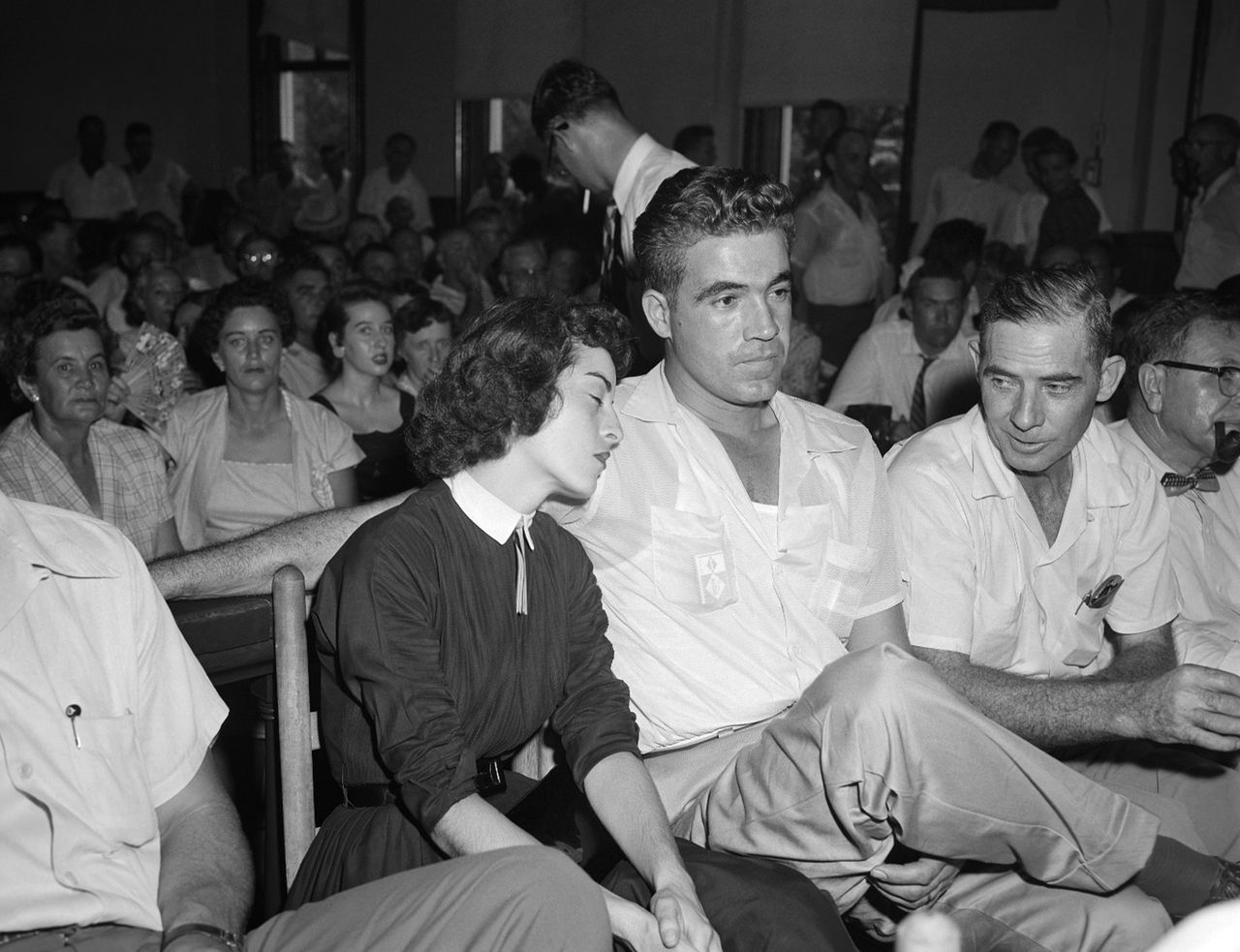Carolyn Bryant Donham, wife of man acquitted of Emmett Till’s lynching, dead at 88
The white woman who accused Black teenager Emmett Till of whistling at before he was lynched in Mississippi in 1955 has died in hospice care in Louisiana, a coroner’s report shows. Carolyn Bryant Donham was 88.
Donham died Tuesday night in Westlake, Louisiana, according to a death report filed Thursday in Calcasieu Parish Coroner’s Office in Louisiana.
Till’s kidnapping and killing became a catalyst for the civil rights movement when his mother insisted on an open-casket funeral in their hometown of Chicago after his brutalized body was pulled from a river in Mississippi. Jet magazine published photos.
Till traveled from Chicago to visit relatives in Mississippi in August 1955. Donham — then named Carolyn Bryant — accused him of whistling at her at a grocery store in the small community of Money. The Rev. Wheeler Parker, a cousin of Till who was there, has said 14-year-old Till whistled at the woman, an act that flew in the face of Mississippi’s racist social codes of the era.
Evidence indicates a woman identified Till to her then-husband Roy Bryant and his half-brother J.W. Milam, who killed the teenager. An all-white jury acquitted the two white men in the killing, but the men later confessed in an interview with Look magazine.
In an unpublished memoir obtained by The Associated Press in 2022, Donham said she was unaware of what would happen to the 14-year-old Till. Donham was 21 at the time.
The contents of the 99-page manuscript, titled “I am More Than A Wolf Whistle,” were first reported by the Mississippi Center for Investigative Reporting. Historian and author Timothy Tyson of Durham, who said he obtained a copy from Donham while interviewing her in 2008, provided a copy to the AP.
Tyson had placed the manuscript in an archive at the University of North Carolina with the agreement that it not be made public for decades, though he said he gave it to the FBI during an investigation the agency concluded last year. He said he decided to make it public now following the recent discovery of an arrest warrant on kidnapping charges that was issued for Donham in 1955 but never served.
